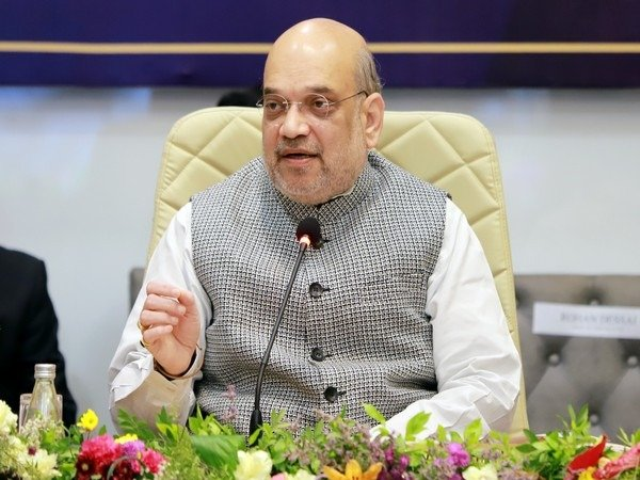Amit Shah Unveils New Policies and Strategies at Anti-Terrorism Conference-2024
Shah highlighted the role of the amended UAPA and other anti-terror laws that have granted agencies broader powers to disrupt terrorist financing and international collaboration.

- Country:
- India
Union Home Minister and Minister of Cooperation, Shri Amit Shah, addressed the inaugural session of the 'Anti-Terrorism Conference-2024' organized by the National Investigation Agency (NIA) in New Delhi, where he announced new policies aimed at strengthening India’s anti-terror infrastructure. Attendees included top officials like the Union Home Secretary, Intelligence Bureau Director, Deputy National Security Advisor, and NIA Director General. Key Initiatives and Announcements
National Counter-Terrorism Policy: Shri Amit Shah revealed that a National Counter-Terrorism Policy will soon be introduced. The policy aims to tackle terrorism through a more centralized, strategic approach and is part of a larger effort to enhance India’s anti-terror capabilities under Prime Minister Narendra Modi’s leadership.
Empowering NIA and Law Enforcement: The conference focused on empowering law enforcement agencies, especially the NIA, to combat terrorism effectively. Shah highlighted that while NIA serves as an investigative agency, it also plays a critical role in strengthening the nation’s anti-terror framework. He unveiled new Standard Operating Procedures (SoP) for investigations under the Unlawful Activities (Prevention) Act (UAPA) to ensure that cases are prosecuted effectively in court.
Technological Advances in Counter-Terrorism: Emphasizing the need for technology, Shah discussed the integration of AI in counter-terror databases like NATGRID, NCORD, NIDAAN, and MANAS. He encouraged officers to leverage these platforms to enhance intelligence gathering and streamline operations at the police station level across states. He added that data-sharing must evolve from a "Need to Know" basis to a "Duty to Share" approach.
Significant Reduction in Terrorism: Since 2014, there has been a 70% decrease in terrorist incidents, with no major terror attacks occurring over the past decade. Shri Shah credited this to stringent legal reforms and an intensified focus on intelligence gathering, including amendments to the NIA Act and UAPA, which expanded NIA’s jurisdiction for overseas investigations and granted authority to seize property linked to terrorism.
Honoring Sacrifice and Commitment: Shah honored the 11 NIA medalists for their exemplary service and acknowledged the sacrifice of 36,468 police personnel who have died protecting the nation’s internal security and borders. He reinforced the importance of training all levels of law enforcement, from beat officers to Directors General, to ensure coordinated anti-terror efforts nationwide.
The Role of Intelligence and Database Modernization
A key takeaway from Shah’s speech was the emphasis on creating a central repository of intelligence through initiatives like the National Memory Bank and Multi-Agency Centre (MAC). These databases and intelligence-sharing tools are essential to tracking terror networks, identifying suspects, and disrupting funding channels such as hawala and narcotics operations.
Strengthening International Cooperation and Anti-Terror Laws
In recent years, India has designated over 15 organizations as Terrorist Organizations and Unlawful Associations, with seven more added to the list recently. Shah highlighted the role of the amended UAPA and other anti-terror laws that have granted agencies broader powers to disrupt terrorist financing and international collaboration. He also stressed the importance of aligning with international partners to counter transnational threats.
New Criminal Laws to Transform Justice System
Shri Amit Shah concluded by discussing India’s new criminal laws, which he described as transformative for the criminal justice system. He called upon states to fully implement these laws to modernize India’s legal framework, noting that for the first time, they provide a clear definition of terrorism. He emphasized the importance of collaboration between police, forensics, courts, and prosecution to enhance the country’s ability to fight terrorism effectively.
Moving Forward with the "Whole of Government" Approach
Shri Shah reiterated the need for a "Whole of Government Approach" to counter terrorism and associated challenges like terror financing and cryptocurrency threats. Under Prime Minister Modi’s leadership, the Ministry of Home Affairs is committed to creating an integrated, actionable system that will bring together resources from all levels of government, ensuring a united response to the threat of terrorism.
The two-day Anti-Terrorism Conference-2024, attended by senior officials from various states, UTs, and departments, aims to create a comprehensive strategy to address evolving terror threats and enhance national security.










